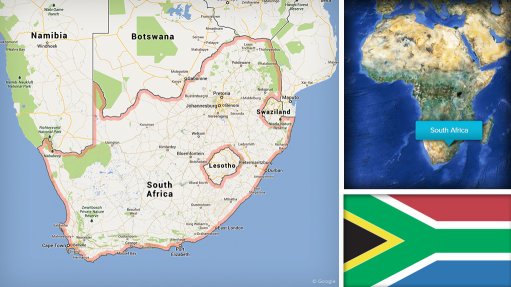Changing South Africa’s labour law ‘not the answer’
Despite ongoing calls for a review of South Africa’s labour legislation to resolve the country’s industrial-relations and unemployment problems, Department of Labour deputy director-general for labour policy and industrial relations Les Kettledas believes the answer lies not in amending the law, but in the proper implementation thereof.
“I wish it was as simple as that [changing the law]. Labour relations involve buyers and sellers in a highly contested terrain. In South Africa, this terrain still bears the burden of a legacy of oppression and racial discrimination and there continues to be extreme income and wage inequalities,” he said on behalf of Labour Minister Mildred Oliphant at the twenty-sixth yearly Labour Law Conference, in Sandton.
Kettledas stated that, along with improved implementation of the labour law, a better understanding of the legislation and upholding the values that underpinned it, would go a long way in addressing South Africa’s labour problems.
He said the mining strikes and the Western Cape farm worker protest last year, had highlighted the need to strengthen respect for South Africa’s legal dispensation to ensure that processes and procedures governing labour relations were adhered to.
Kettledas told delegates at the Labour Law conference that achieving the desired social and economic objectives would be a challenge that went “well beyond” the law, particularly given the competing interests of raising living standards, closing the earnings gap and reducing mass unemployment, which stood at 25.6% in the second quarter.
“There are also some who are clearly of the view that our labour legislation is too restrictive and that the South African labour market is overregulated. It will not be helpful, at this time, to fall back on old debates about labour law being the cause of actual or perceived rigidity in the labour market. As government, we are committed to a policy and legislative approach that is captured by the concept of regulated flexibility. Regulated flexibility accepts the necessity of regulation, but also accepts the need for flexibility. The key issue is finding the right balance,” he stated.
Over the last three years, South Africa has seen an increase in strikes with the average loss of workdays having come to three-million over the 2011 to 2012 period, which rendered it appropriate to reflect on the implications these challenges held for the country’s labour law, Kettledas said.
South Africa’s labour legislation (the Labour Relations Act and the Basic Conditions of Employment Act) is principally concerned with providing the employed with basic protections against unfair labour practices, unsafe working conditions and a decent living wage.
Government is in the process of amending various labour laws. The Basic Conditions of Employment Amendment Bill was passed in the National Assembly in June, while the Labour Relations Amendment Bill, the Employment Equity Amendment Bill and the new Employment Services Bill were currently in the Parliamentary process.
In July, Oliphant also published the Unemployment Insurance Amendment Bill for tabling at the National Economic Development and Labour Council and for public comment. The Labour Department was also working on amendments to the Occupational Health and Safety Act and the Compensation for Occupational Injuries and Diseases Act.
“Appropriate labour legislation and regu-lations that are conducive to a responsive labour market remain a critical means for us to achieve our vision . . . we are in a difficult phase economically and in our labour relations,” Kettledas said.
He highlighted that the difficult economic and labour market conditions in South Africa had placed collective bargaining under pressure.
Also impacting on South Africa’s economic development and labour market prospects was the ongoing global economic situation, with sluggish improvement witnessed.
Meanwhile, Labour Appeal Court president Judge Basheer Waglay highlighted the issue of youth unemployment and raised concern that South African youth found it very difficult to secure employment of any kind.
He noted that a joint attempt by youth organisations, government, business and labour would be required to tackle the issue.
The partnership would have to work towards improving the skills of youth, better- ing their work exposure through internships, apprenticeships and open days and creating jobs.
“The Youth Employment Accord provides for businesses and government to set aside jobs for young people and to give a substantial number of all new jobs created to the youth. This is one initiative I hope will be thoroughly supported,” Waglay said.
While there had been a small increase in employment in the first quarter of 2013, the number of unemployed has increased even more. There were now 4.6-million unemployed persons in the South African labour market and, of these, about 2.3-million are discouraged work seekers.
At the end of March, unemployment in South Africa was at 25.2%, while youth unemployment was at 41%.
The International Labour Organisation’s Global Employment Report of 2012 indicated that 400-million jobs would be needed over the next decade to avoid a further increase in global unemployment.
Waglay further stated that South Africa’s Constitution provided a framework for parties to pursue their interests, in the form of the courts, the Commission for Conciliation, Mediation and Arbitration and collective bargaining that created a platform for dis-cussion and debate.
“There should therefore be no room for violence and intimidation – there should be a peaceful pursuit of the diverse interest of stakeholders.”
Article Enquiry
Email Article
Save Article
Feedback
To advertise email advertising@creamermedia.co.za or click here
Comments
Announcements
What's On
Subscribe to improve your user experience...
Option 1 (equivalent of R125 a month):
Receive a weekly copy of Creamer Media's Engineering News & Mining Weekly magazine
(print copy for those in South Africa and e-magazine for those outside of South Africa)
Receive daily email newsletters
Access to full search results
Access archive of magazine back copies
Access to Projects in Progress
Access to ONE Research Report of your choice in PDF format
Option 2 (equivalent of R375 a month):
All benefits from Option 1
PLUS
Access to Creamer Media's Research Channel Africa for ALL Research Reports, in PDF format, on various industrial and mining sectors
including Electricity; Water; Energy Transition; Hydrogen; Roads, Rail and Ports; Coal; Gold; Platinum; Battery Metals; etc.
Already a subscriber?
Forgotten your password?
Receive weekly copy of Creamer Media's Engineering News & Mining Weekly magazine (print copy for those in South Africa and e-magazine for those outside of South Africa)
➕
Recieve daily email newsletters
➕
Access to full search results
➕
Access archive of magazine back copies
➕
Access to Projects in Progress
➕
Access to ONE Research Report of your choice in PDF format
RESEARCH CHANNEL AFRICA
R4500 (equivalent of R375 a month)
SUBSCRIBEAll benefits from Option 1
➕
Access to Creamer Media's Research Channel Africa for ALL Research Reports on various industrial and mining sectors, in PDF format, including on:
Electricity
➕
Water
➕
Energy Transition
➕
Hydrogen
➕
Roads, Rail and Ports
➕
Coal
➕
Gold
➕
Platinum
➕
Battery Metals
➕
etc.
Receive all benefits from Option 1 or Option 2 delivered to numerous people at your company
➕
Multiple User names and Passwords for simultaneous log-ins
➕
Intranet integration access to all in your organisation
















